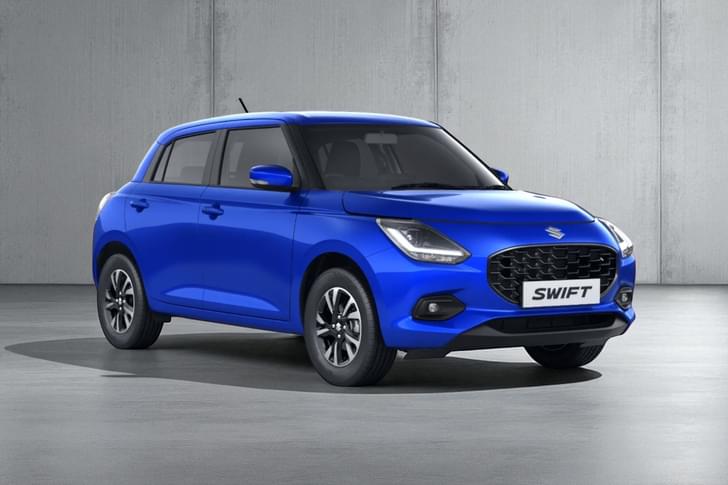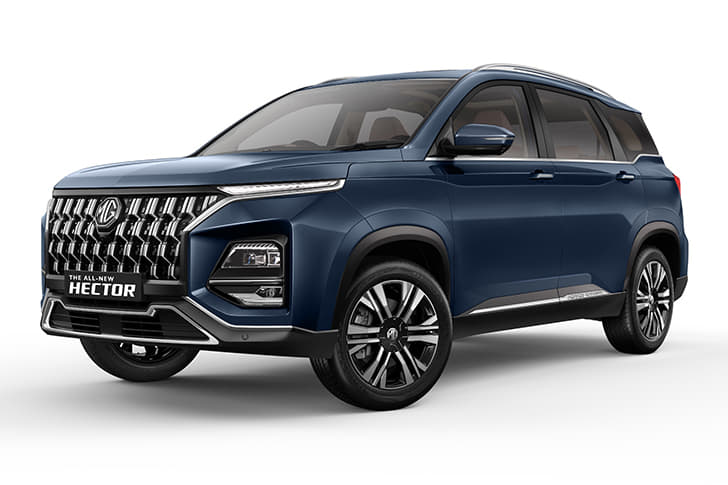Suzuki Motor Corporation, the parent of India’s largest carmaker Maruti, has announced its global strategy plan. To participate in the growing electrification space, Suzuki Motors plans to have a portfolio of half a dozen models in India by FY30. We tell you what could be Maruti’s future EV line-up by 2030.
It is important to note that while Suzuki has announced FY24 in the document, it means FY24 for Japan, which translates into FY25 for the Indian market.
- First Maruti EV to go on sale in India by 2025
- Five more full-EV models to follow by 2030
- More co-branded Toyota-Suzuki models on the way
First Maruti EV to go on sale by FY24
The document confirms that the first fully-electric Maruti will hit Indian roads by 2025. This new EV will be the production version of the eVX concept that was shown earlier this month at Auto Expo 2023. Apart from the eVX, Maruti’s core strength will continue to be smaller and mass-market EVs, unlike Mahindra and Tata Motors who are going towards a majority of bigger vehicles for their future EV portolio.
What else does the document say?
In the document, Suzuki has announced that it expects internal combustion engines to account for 60 percent of the domestic market by the end of the decade. The company forecasts 25 percent of its total sales to come from hybrid electric vehicles by 2030, almost 10 percentage points higher than the 15 percent share from zero emission battery electric vehicles. This was revealed in a presentation made by the company, which was released on the stock exchanges today.
“In India, we will introduce the SUV battery EV announced at Auto Expo 2023 in FY24, with six models to be launched by FY30," said Suzuki Motor Corporation. "Suzuki will provide not only battery EVs but also carbon neutral internal combustion engine vehicles that use CNG, biogas and ethanol mixed fuels."
Suzuki expects India and Africa to be among the fastest growing regions. It forecasts the Indian economy to grow from USD 1.6 trillion (Rs 130 lakh crore) at present to USD 13.5 trillion (Rs 1,113 lakh crore) by 2050.
Suzuki’s biogas demonstration project in India
As far as investments go, Suzuki has committed to an investment of 4.5 trillion yen, or Rs 2.82 lakh crore, till the end of the decade with an aim of doubling its turnover to Rs 4.39 lakh crore and contribute towards a carbon-neutral future. Of the planned investment, two trillion yen is planned to be invested towards "research and development expenses in areas including carbon neutrality such as electrification and biogas", the brand said. The rest 2.5 trillion yen is planned as capital expenditure in facilities, including 500 billion yen for a BEV battery plant.
“We will challenge to strike a balance between increasing sales units and reducing total CO2 emission amount. Suzuki’s unique initiative to tackle this challenge is the biogas business, in which biogas derived from cow dung, dairy wastes that can be seen mainly in India’s rural area, will be produced and supplied,” explained Suzuki Motor.
This biogas can be used for Suzuki’s CNG models that account for approximately 70 percent of the CNG car market in India. Suzuki signed an MoU with the Indian government's National Dairy Development Board as well as Banas Dairy, Asia’s largest dairy manufacturer, to conduct verification of biogas.
“We believe that the biogas business in India not only contributes to carbon neutrality, but also promotes economic growth and contributes to the society of India. We are also in view of expanding the business to other farming areas in regions, including Africa, ASEAN, and Japan in the future,” claimed the company.
Suzuki Growth Strategy for 2030
As per the mid-term strategic plan – called Growth Strategy for FY30 – Suzuki Motor Corporation’s motto is to deliver “value-packed products” by focusing on the customer. “Suzuki will contribute to the realisation of a carbon neutral society and the economic growth of emerging countries such as India, ASEAN, and Africa, with our main business regions, Japan, India, and Europe, as the core," the statement added.
Based on the target date set by each government, Suzuki says it aims to achieve carbon neutrality in Japan and Europe by 2050 and in India by 2070.
Suzuki’s EV plan for Japan
The EVs in Japan will start with the introduction of commercial mini-vehicle battery EVs in FY23 and it plans to introduce compact SUVs and passenger mini vehicles, with six models to be launched by FY30. In addition, Suzuki will develop new hybrids for mini and compact vehicles.
The company will also be introducing eight new electric two-wheelers catering to the varied requirement of transportation. “We will introduce a battery EV in FY24. We plan to launch eight models by FY30 with a battery EV ratio of 25 percent,” added Suzuki Motor. It has set itself a challenge to achieve carbon neutrality of domestic plants by FY35.
The Japanese auto major asserts that while the Indian market will continue to grow till FY30, it admits that an increase in total CO2 emission amount is unavoidable, regardless of reduction in CO2 emission from products.
Suzuki’s partnership with Toyota Motor Corp
The company said it will deepen its cooperation with Toyota Motor Corporation while continuing to be a competitor and aim for sustainable growth and conquer various issues surrounding the automobile industry. As of now, Suzuki supplies multiple models to Toyota in India and overseas as part of this joint venture, which includes multiple hatchbacks, MPVs and SUVs.





























